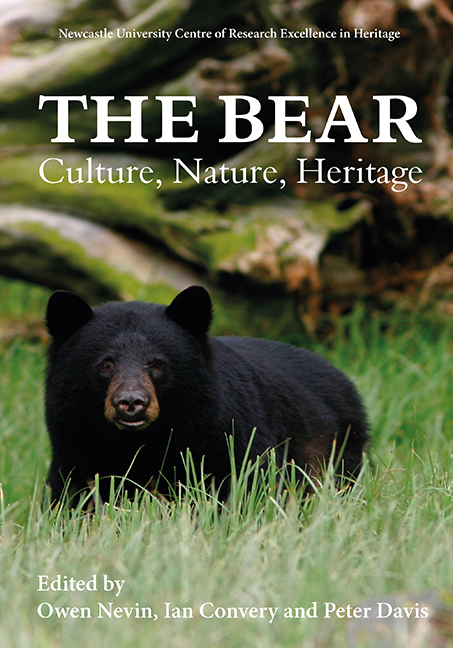Book contents
- Frontmatter
- Contents
- List of Illustrations
- Acknowledgments
- List of Abbreviations
- Foreword: The Bear: A Cultural and Natural Heritage
- Introduction: What is a Bear?
- Bear-People Interactions
- Bears in the Public Gaze
- Bear Biology, Management and Conservation
- Afterword: “It's Me Bear”: Reflections on a Unique Career Working with Bears
- List of Contributors
- Index
- Previous titles
17 - Understanding Local Folklore and Attitudes in Apennine Brown Bear Conservation
Published online by Cambridge University Press: 21 March 2020
- Frontmatter
- Contents
- List of Illustrations
- Acknowledgments
- List of Abbreviations
- Foreword: The Bear: A Cultural and Natural Heritage
- Introduction: What is a Bear?
- Bear-People Interactions
- Bears in the Public Gaze
- Bear Biology, Management and Conservation
- Afterword: “It's Me Bear”: Reflections on a Unique Career Working with Bears
- List of Contributors
- Index
- Previous titles
Summary
Folklore, myths and symbols can influence the way people perceive different species, especially when societies associate multiple and differing meanings to animals. Throughout history and across geographic distribution bears have been portrayed and valued for their beauty, power and strength, their ecological significance, or their kinship to people. However, bears have been disliked and feared for their ferocity and for the negative economic impacts they can inflict on people and their livelihoods. The way bears are portrayed still affects people's attitudes and willingness to support bear conservation. Using a research project from central Italy as example, we highlight how local narratives, attitudes and behaviours towards bears are important considerations for achieving conservation success.
BEAR CONSERVATION AND MANAGEMENT
The conservation and management of large carnivores often occurs in highly contested and complex environments where diverse and opposing dispositions toward predators can lead to conflict or coexistence situations (Mattson et al 2006; Redpath et al 2015; Frank et al 2019). How individuals and societies live with these species, in both conflict or coexistence, is influenced by values, beliefs, cognitions, emotions and feelings. These factors influence our perceptions of a species as much as economic loss, risk to safety, human fatality, the historical presence or absence of the species and communities’ livelihoods (Kaczensky et al 2004; Glikman et al 2012; McFarlane et al 2007). Understanding the reasons behind people's disposition toward predators can be even more complex when large carnivores have entrenched cultural and historical meanings (Mattson et al 2006) and evoke mythical symbolisms (Harker and Bates 2007). The symbolic status of large carnivores is so significant that biologists have suggested that beliefs about these predators can be more important than the objective biological truth of a species in shaping people's attitudes (Fritts et al 2003). Popular culture and identities associated to large carnivores, positive or negative, can indeed influence whether a human-carnivore encounter will turn into a conflict or coexistence situation, making the difference between failing or succeeding in carnivore conservation (Hazzah et al 2014; Young et al 2015).
Popular culture, including local narratives, folklore and myths, can undermine carnivore conservation efforts by perpetuating negative discourse and behavioural norms, thus jeopardizing the outcome of any management action (Mattson et al 2006).
- Type
- Chapter
- Information
- The Bear: Culture, Nature, Heritage , pp. 211 - 220Publisher: Boydell & BrewerPrint publication year: 2019



